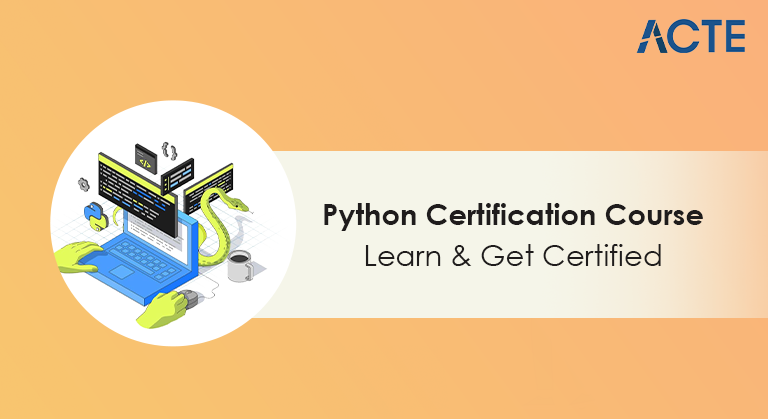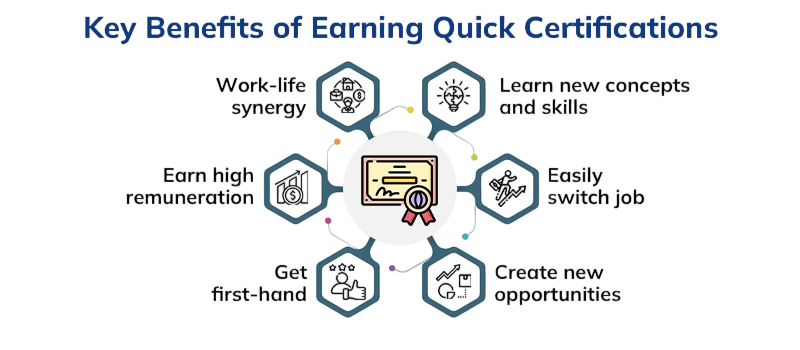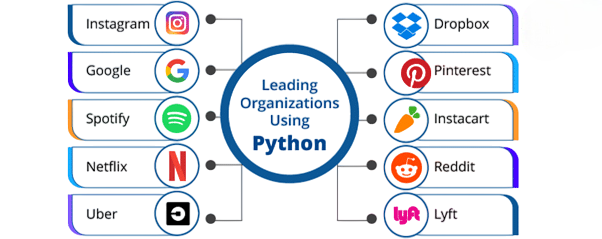
- Why Get Certified in Python?
- Types of Python Certifications
- Certification Bodies and Course Providers
- Skills Covered in Python Certification Programs
- Eligibility and Prerequisites for Python Certifications
- Benefits of Certification for Job Seekers and Professionals
- Career Opportunities After Python Certification
- Salary Expectations and Industry Demand
- Tips for Choosing the Right Certification Path
- Conclusion
Why Get Certified in Python?
The digital landscape is changing rapidly, and at its core is a powerful and flexible language: Python. From artificial intelligence and machine learning to web development and data analysis, Python drives many modern technologies. For those eager to enter or advance in the tech industry, learning Python is becoming essential. But how do you effectively showcase and solidify these skills? The answer often lies in obtaining a Python certification.

To take that next step with confidence, exploring Python Training reveals how structured courses, expert mentorship, and hands-on projects help learners master core concepts and stand out in competitive job markets. In a competitive job market, a Python certification serves as proof of your skills. It shows potential employers that you have a solid understanding and practical ability in the language, often confirmed by a standardized testing process.
Interested in Obtaining Your Python Certificate? View The Python Developer Course Offered By ACTE Right Now!
Types of Python Certifications
There are Types of Python Certifications available, catering to various skill levels and career goals. Some focus on core Python programming, suitable for beginners and those pursuing general software development roles. Beyond the basics, specialized certifications explore areas like data science, web development, and automation. To understand the broader career landscape these certifications support, exploring What Is a Software Developer reveals how developers design, build, and maintain software systems bridging technical expertise with problem-solving to drive innovation across industries.
- Data Science and Machine Learning: These certifications demonstrate your ability to use Python libraries such as Pandas, NumPy, Scikit-learn, and TensorFlow for data manipulation, analysis, and predictive modeling.
- Web Development: Concentrating on frameworks like Django or Flask, these certifications showcase your skills in creating dynamic and interactive web applications.
- Automation and Scripting: These programs highlight your ability to use Python for automating repetitive tasks, managing systems, and improving efficiency.
Certification Bodies and Course Providers
Many respected organizations offer Python certifications that can improve your skills and help your career. The Python Institute is known for its certification series, starting with PCEP for beginners and moving up to PCAP and PCPP for more experienced programmers. Microsoft also provides Azure certifications that include essential Python skills, especially for those in cloud computing and data services. Similarly, Google offers associate and professional certifications in areas like cloud engineering, which often need a solid understanding of Python, even if they aren’t labeled strictly as Python certifications. To expand your backend and mobile development capabilities, exploring Kotlin vs Java reveals how each language compares in terms of syntax, performance, interoperability, and ecosystem support helping you choose the right tool for scalable, cloud-integrated applications. By pursuing these certifications, you can gain valuable knowledge and show your proficiency in Python programming. /p>
Gain Your Master’s Certification in Python Developer by Enrolling in Our Python Master Program Training Course Now!
Skills Covered in Python Certification Programs
A typical Python certification program covers a wide range of essential programming concepts. You can expect to master syntax, data types, control flow, functions, and object-oriented programming. To complement this with a deeper understanding of software design principles, exploring What is Abstraction in Java reveals how hiding implementation details and exposing only relevant functionalities helps developers build scalable, maintainable, and modular applications.
- Core Python Syntax and Semantics: Comprehending variables, data types, operators, control flow (if-else statements, loops), and functions.
- Data Structures: Mastering lists, tuples, dictionaries, and sets for effective data organization.
- Object-Oriented Programming (OOP): Learning about classes, objects, inheritance, and polymorphism is crucial for building scalable applications.
- File Handling: Knowing how to read from and write to files is key for data processing.
- Error Handling and Debugging: Developing skills to identify and fix issues in your code.
- Module and Package Management: Understanding how to use and create reusable code components.
- Introduction to Libraries (depending on specialization): For data science, this includes libraries like NumPy and Pandas; for web development, frameworks like Flask or Django.
Eligibility and Prerequisites for Python Certifications
Most Python certifications aim to be accessible. Introductory certifications often have no formal prerequisites beyond a basic grasp of computer operations. However, for advanced or specialized certifications, employers and providers might recommend or require prior exposure to core programming concepts. To build that foundation, exploring Important Data Structures and Algorithms reveals how mastering arrays, stacks, queues, trees, and sorting techniques equips learners to solve complex problems and succeed in technical assessments.
- Prior Programming Experience: Some familiarity with programming concepts can be beneficial.
- Completion of Specific Courses: Some certifications may require finishing a particular training program beforehand.
- A Foundational Python Certification: For advanced levels, possessing a lower-tier certification from the same body (such as The Python Institute’s PCAP after PCEP) is typically required.
Always check the specific requirements for the certification you are interested in.
Are You Preparing for Python Jobs? Check Out ACTE’s Python Interview Questions and Answers to Boost Your Preparation!
Benefits of Certification for Job Seekers and Professionals
Getting a Python certification provides many benefits for both beginners and experienced workers. First, it improves your chances of getting hired. Certified individuals often stand out more and secure interviews more easily. Additionally, certification boosts your credibility by proving your coding skills to employers, recruiters, and clients. For those already working, it can lead to better job prospects, including promotions or moves into specialized, higher-paying positions. Certification also confirms your knowledge and helps you identify where you can improve. To pursue this path with hands-on guidance, exploring Python Training reveals how structured learning, real-world projects, and expert mentorship can sharpen your skills and accelerate career growth in today’s tech-driven landscape. Many certified professionals see increased salary potential because of their recognized skills.
Career Opportunities After Python Certification
A Python certification opens the door to many engaging career paths. Here are just a few examples:
- Software Developer: Building and maintaining applications across various domains.
- Data Analyst: Examining complex datasets to reveal insights and inform business decisions.
- Data Scientist: Creating predictive models and machine learning algorithms.
- Machine Learning Engineer: Designing, building, and deploying machine learning systems.
- Web Developer (Back-end): Developing server-side logic for web applications using Python frameworks.
- Automation Engineer/DevOps Engineer: Scripting and automating IT processes and infrastructure.
- Python Developer: A generalist role focused on implementing Python-based solutions.

Salary Expectations and Industry Demand
The need for Python developers and Python-skilled professionals is rising across nearly every industry. This high demand, combined with Python’s specialized applications, leads to competitive salaries. While exact figures vary by location, experience level, and specific role, Python-certified professionals usually earn higher salaries than their non-certified peers. To evaluate language choices for long-term career growth, exploring Go vs Python reveals how Python excels in versatility and ease of use, while Go offers superior performance and concurrency helping developers align their skillset with industry needs and compensation trends. The ongoing growth of data science, AI, and cloud computing means that Python skills, along with certifications, will remain in demand for the foreseeable future.
Tips for Choosing the Right Certification Path
With numerous options available, selecting the right Python certification is essential: it should align with your career goals, current skill level, and preferred learning format. To maximize your learning experience and productivity during certification prep, exploring Best Python IDEs and Code Editors reveals how tools like PyCharm, VS Code, and Jupyter Notebook streamline coding, debugging, and project management for Python developers at every stage.
- Assess Your Career Goals: Are you aiming for data science, web development, or general software engineering? Select a certification that aligns with your desired role.
- Research Certification Bodies: Choose certifications from recognized and respected organizations since these carry more weight in the industry.
- Review the Curriculum: Ensure the course content covers the skills you need and want to learn.
- Consider Prerequisites and Cost: Take into account any necessary prior knowledge and your budget for training and exams.
- Look for Hands-on Projects: Certifications involving practical projects or labs provide a more enriching learning experience.
- Check Industry Recognition: Identify which certifications are frequently referenced in job listings for roles you want.
Conclusion
In today’s tech-driven world, investing in your Python skills is a smart career move. Earning a Python certification is a great way to formalize your learning, validate your abilities, and significantly improve your chances of getting a job. It clearly signals to employers that you have the in-demand skills required to succeed in the modern technology landscape. To build a strong foundation and gain hands-on experience, exploring Python Training reveals how structured learning paths, real-world projects, and expert guidance can accelerate your journey into software development and data science. Whether you’re just starting your coding journey or looking to specialize further, a Python certification could be key to unlocking your full professional potential.





